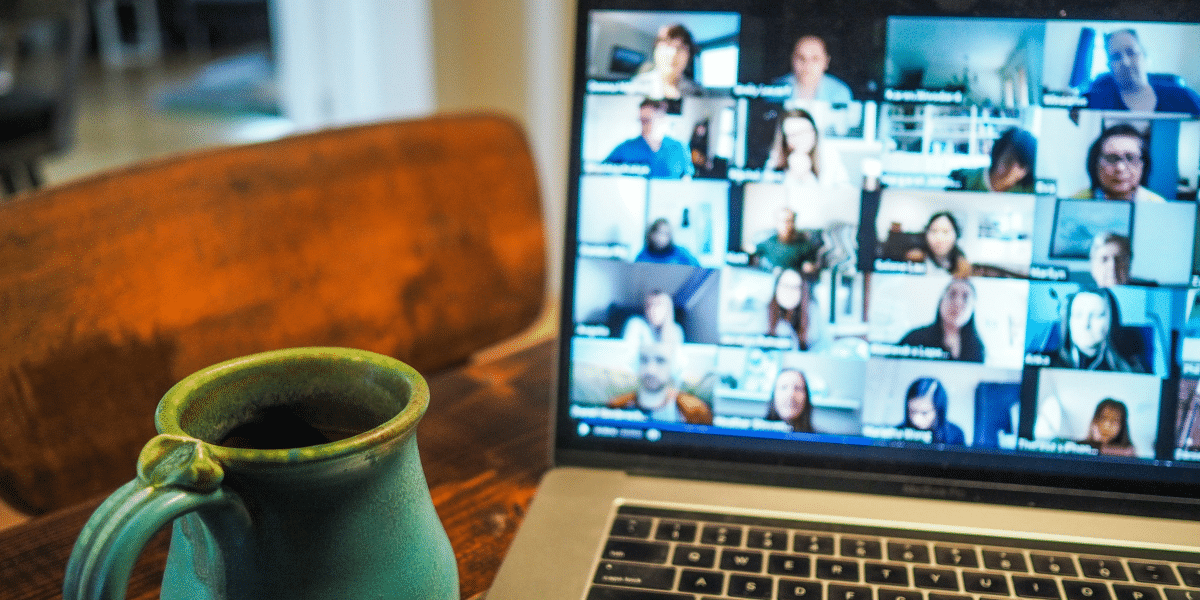Despite their remarkable achievements and contributions to the industry, women in sports have long watched from the sidelines. The lack of representation and coverage for female athletes needs to change. Flame Bearers has taken on the task.
The company, founded by female entrepreneur Jamie Mittelman, is redefining how people talk about women’s sports. It was born when Mittelman pitched a role to the International Olympics Committee, only to be stopped in her tracks by the COVID-19 pandemic. Instead of giving up, she decided to create an independent venture focused on elevating women in sports, making sure to elevate athletes with disabilities and women from the Global South just as much as able bodied athletes and women from the Global North. She focuses on the person, not the sport.
“We’re the first organization that champions the stories of women Olympians and Paralympians, and we firmly believe that these athletes should be elevated on the same platform. Less than 4% of US sports coverage goes to women athletes, and pretty much all of that is for able-bodied athletes from certain regions, who play certain sports, and identify in certain ways. Everyone talks about sisterhood and solidarity across boundaries be it geography, race, sexuality, or X, Y, and Z” Mittleman explained. “It’s past time all elite women athletes get their dues.” In terms of how it happened, Mittelman says, “I got funding from Harvard, formed a team of faculty advisors and mentors, and created it on my own.” Three years later, Flame Bearers is setting a new standard in the sporting community.
Aligned with athletes
Flame Bearers dedicates itself to spotlighting athletes often overlooked by mainstream media and sports organizations. The company’s work extends beyond Olympians to feature Paralympians, who are frequently marginalized. Mittelman recognized the lack of meaningful coverage of the Paralympics compared to the Olympics and decided to do something about it.
The company, which holds live events and produces video and podcasts, takes a subversive, athlete-centered approach, disrupting media norms in the space. Above all else, it aims to help athletes overcome a fear of representation in the media, earn their trust, and portray them in an uplifting and inspiring way. The company focuses on the human perspective and uses language that speaks to the athlete on their terms.
In late 2021, Flame Bearers released a podcast with Caster Semenya from South Africa. Semenya has naturally high testosterone levels, which led to controversy surrounding her participation and ban from her participation in women’s sports in Tokyo unless she altered her natural body. Despite a backlash to the episode, Flame Bearers stood firmly on Semenya’s side, showcasing their commitment to elevating all women in sports. Weeks after the Tokyo Olympics, the rules changed yet again, but it was too little too late for Caster, who had already missed her opportunity to defend her Olympic title.
Storytelling for superhumans
Another way in which Flame Bearers separates itself is its advocacy for Paralympians. Mittelman’s decision to work with athletes with disabilities came about during the Black Lives Matter movement. Mittelman credits the BLM movement and her Harvard advisor Dr. Kessely Hong to showing her the opportunity to extend her allyship to the disabled community. “I wish I could say that before BLM I was an advocate for people with disabilities. I was a nonfactor before, and frankly, inaction is complacency, which is action itself.”
She recognized the lack of coverage of the Paralympics in comparison to the Olympics and decided to do something about it. It’s worth noting that even the term ‘disabled’ divides some athletes, so providing them a platform to discuss these issues is ever more important.
Going for gold, globally
Sharing the stories of women from outside North America and Central Europe is also integral to Flame Bearers’ mission. For the next generation of female athletes to thrive, exposure to people who look and sound like them is vital. “Shining an equal spotlight on women from the Global South is a huge differentiator.” Other organizations who work in the women’s sports space do incredibly meaningful work but are often limited in geographic scope, focusing only on sports and athletes that are big in US or European markets. According to Mittelman, “The field isn’t level to begin with, so it’s that much more important to tell the stories of women athletes from communities where the support hasn’t historically existed and the athletes challenge cultural norms. As an example, 6 athletes from all of Africa competed in the Beijing Winter Olympics. How many ski racers from Madagascar have you heard of? Can you even name a professional black ski racer? I ask that not to have you wrack your brain, but to emphasize not only the disparities ( geographic, economic and racial) of who competes in what sports, but also to stress the importance of elevating those breaking the mold. I wanted to be a part of making sure that as many people as possible know Mialatania Clerc’s name because she’s changing the face of ski racing and what Malagasy women think they can do”
However, Flame Bearers faces challenges including changing the mindset that women’s sports aren’t a charity case but rather a valuable investment. The company aims to showcase the value and importance of women’s sports and why investing in them is not only worthwhile but necessary. “Many people think of sportswomen like a JV (junior varsity) team or second-class citizens. We’re working hard to change that mentality,” the founder proclaims.
Flame Bearers is making waves in the industry by amplifying the stories of female athletes, especially those from overlooked communities. It is breaking stereotypes and challenging the status quo by bringing attention to the achievements of women in sports. Since its founding, its greatest achievements include holding a panel at the Super Bowl and hosting athletes at Harvard Kennedy School’s Women’s Conference. Flame Bearers’ work is a powerful reminder that everyone, regardless of ability or background, deserves a platform for their stories to be heard and celebrated.






